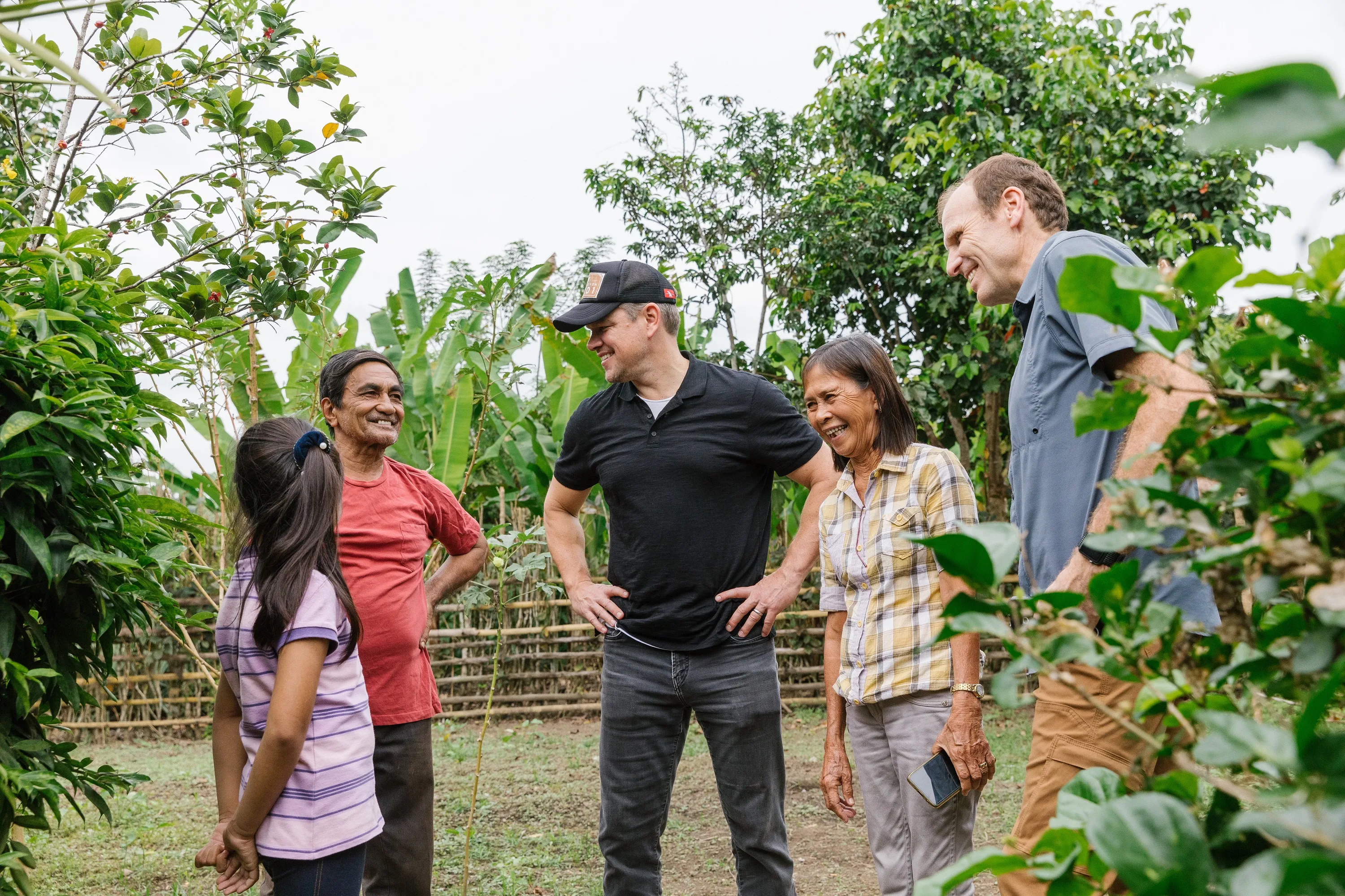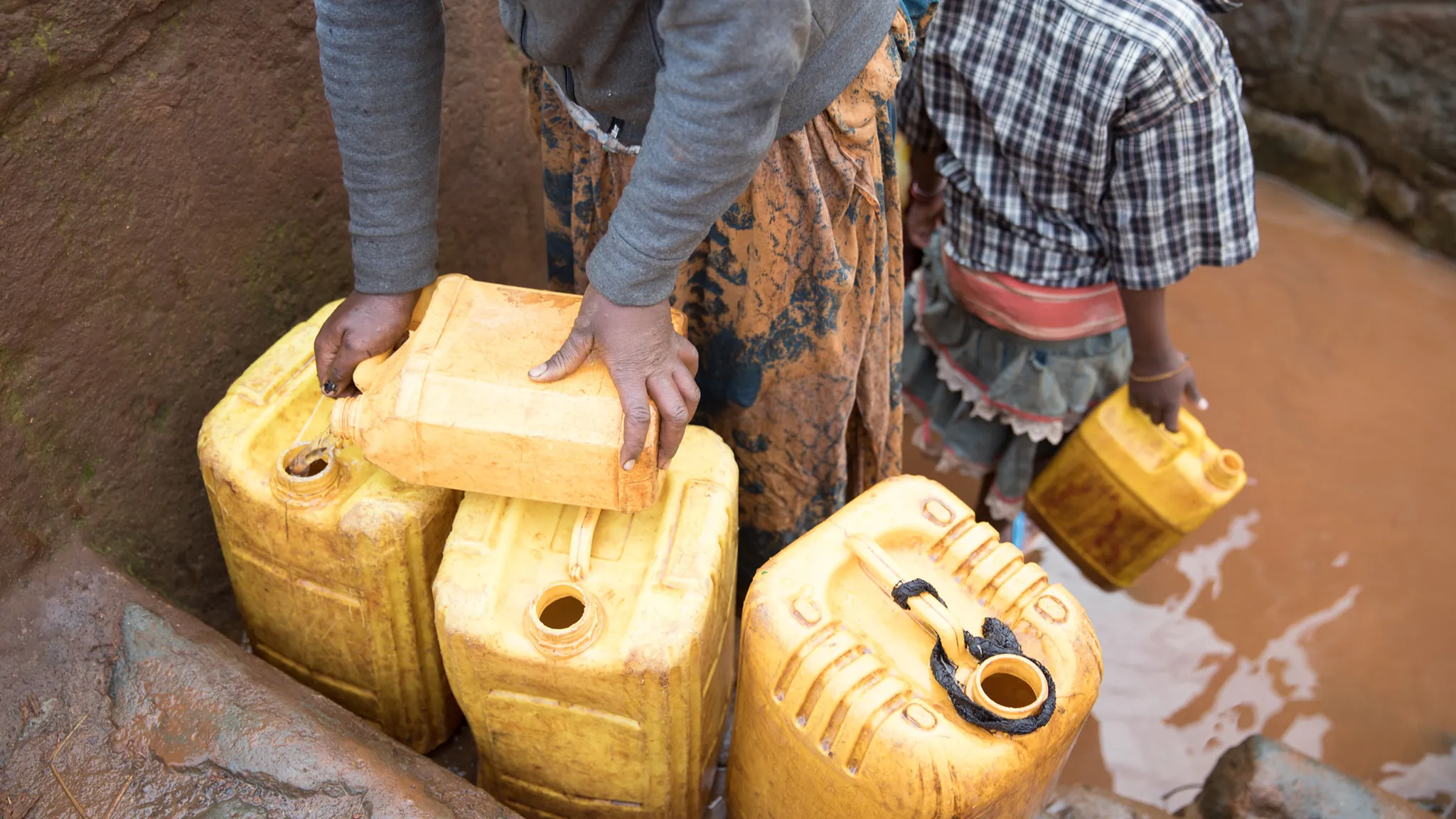Why climate change matters when you’re working to change lives with safe water
By Matt Damon, Co-founder of Water.org
Published October 8th, 2021
From the air we breathe to the plants we eat; climate change affects the viability of every living thing on earth. And while droughts and floods are water-related results of climate change, we may not think of water as being the most proximate way we all feel its effects. But it is and answers the question, “Why is a non-profit that creates financial solutions to empower people in poverty with safe water talking about climate change?” We are talking about climate change because water is the primary way in which we all feel the effects of it and water is critical for survival. To achieve the global goal of safe water for all, to create resilience and a bright future for all, we must address climate change.
Changes in precipitation patterns, drought, and rising sea levels are some of the ways climate drastically impacts the quality, accessibility and management of the water and sanitation systems we rely on. When those systems are not positioned to withstand the impact of these events, people living in poverty are most affected. And, these are the people we serve.
Water underpins every social issue people living in poverty face and the impacts of climate change intensify the issues
Today, 771 million people – 1 in 10 – lack access to safe water and 1.7 billion – 1 in 4 – lack access to a toilet. Introduce climate change, and impoverished populations suffer disproportionately. Because low-income families rely on unstable water and sanitation systems, weaker institutional protections, and have limited access to funding they are not prepared to endure events brought about by climate change like floods and droughts. According to the United Nations World Water Development Report, it is projected that by 2050, 50% of the world will live in water-stressed areas, and these people will bear the greatest brunt of the water crisis. Solving the water crisis now will prepare the most vulnerable to withstand the impacts of climate change and transform their lives for good.
“Water action is climate action. We must focus on global water security by putting the water and sanitation needs of the most vulnerable front and center through our climate discussions and most importantly, our philanthropy.” –Matt Damon, Co-founder of Water.org
Water.org implements financial solutions that support climate resiliency
We do this by making sustainable access to safe water and sanitation affordable through small loans for families living on less than $3 a day. We have found that when given an opportunity to pay for water and sanitation improvements with loans, families in need opt to finance long-term solutions versus struggle day-to-day to find that next liter of water or a place to go.
To make these loans possible in the 11 countries where we work around the world, we partner with local lending institutions to empower families with the solutions that are right for the conditions and environment in which they live. We call this approach WaterCredit. The result—an assortment of strategic, region-specific, long-term solutions. For some families, the loans enable them to purchase rain-storage tanks that sustain them through the dry seasons, for many the best solution is to pay to connect to the local water utility, and for others, small loans help them repair existing structures. Each small loan empowers families in poverty to affordably invest in a lasting, just-right water or sanitation solution that will empower them to withstand the inevitable effects of climate change.
Social entrepreneurs, powered by smart philanthropy, fuel this market-based financial approach—seeing people in poverty not as a problem to be solved, but as a market to be served. It allows low-income families to redirect the coping costs of trying to survive without access to safe water or improved sanitation to affordable, sustainable, and higher quality solutions. To date we have reached more than 38 million people who, with their affordable solutions in place, can experience improved health, increased household incomes, educational opportunities, and more resilience to the impacts of climate change. Millions more stand ready to fund their own solutions and share the same outcomes.
Now more than ever, we must address the global water crisis and with it, the changing climate
This means we focus on global water security by putting the water and sanitation needs of the most vulnerable front and center through our climate discussions and most importantly, our philanthropy. The time is now to invest in water because the future of our world depends on it.

Matt Damon and Gary White, co-founders of Water.org, meeting a family in the Philippines that now has access to safe water at home.
